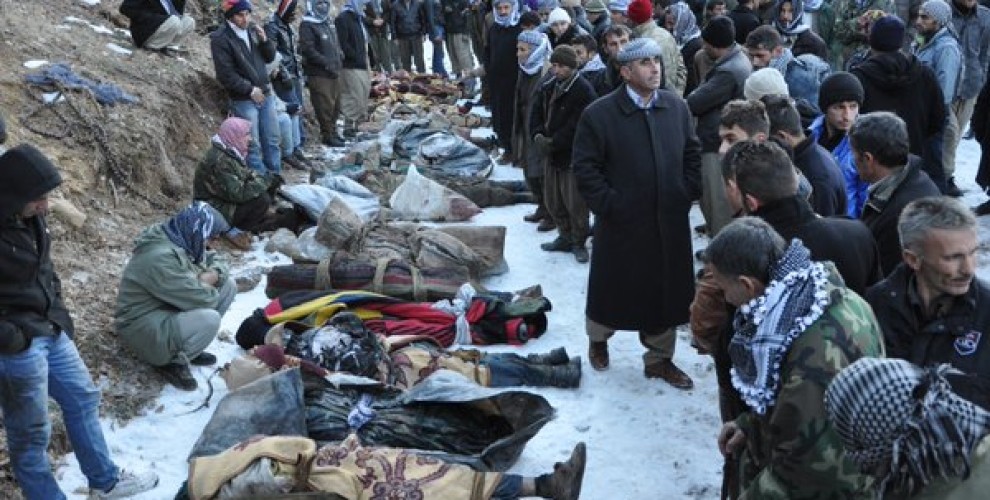Roboksi massacre case not dealt properly by bar associations
Families of the 34 murdered civilians raise questions about how the case was dealt with.
Families of the 34 murdered civilians raise questions about how the case was dealt with.

On 28 December 2011, Turkish warplanes bombed a group of civilians, cross-border traders, in the village of Roboski (Şırnak). Thirty-four people, many of the children under 18, were killed. Families and survivors have been asking for justice for the past seven years. Turkish authorities and judiciary have closed both eyes on the massacre and delivered shameful verdicts in order to avoid taking responsibility for the death of the 34 civilians.
To add shame to outrage, last week, the application to the European Court of Human Rights (ECHR) was rejected on the grounds that domestic legal resources had not been all exhausted.
The domestic legal process was sacrificed to the inefficient and irresponsible practices of lawyers and politicians.
The file was directed by the family, politicians and lawyers to the Constitutional Court (AYM) which contributed to the negative ruling by acting carelessly.
Unjustified delays in requiring extra documents to the lawyers summed with a clearly hostile attitude by the legal institutions in the country, have actually brought to the ECHR ruling.
The Roboski families have said in a statement that they have found “nothing but obstacles and hostility in their legal steps”. In particular they pointed their finger at the non-collaborative attitude shown by the Şırnak Bar Association.
So far the Şırnak Bar Association has made no comments on the issue, while the Diyarbakır Bar Association decided to make a statement saying clearly the way the case was dealt with raises question marks and shows many deficits.
The Diyarbakır Bar Association condemned the Constitutional Court stance as well as the ECHR ruling and indicated there clearly were some irresponsible attitudes.
The families, on the other hand, say they are waiting for the Şırnak Bar Association to say something about the way it dealt with the case.